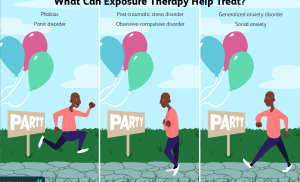How Does Stress Impact Sleep Quality, And Vice Versa?
You know that feeling when you toss and turn in bed, unable to sleep because your mind is racing with worries and stress? It turns out that stress and sleep quality have a complex relationship that can either support or hinder each other. When you’re stressed, it can affect the quality of your sleep, making it difficult to fall asleep or stay asleep throughout the night. On the flip side, inadequate sleep can also contribute to increased stress levels, creating a vicious cycle. In this article, we’ll explore the intricate connection between stress and sleep quality, shedding light on how one impacts the other and offering practical tips to help break the cycle and improve your well-being.

Impact of Stress on Sleep Quality
Stress as a Barrier to Sleep
Stress can have a significant impact on your sleep quality. When you are stressed, your mind tends to be filled with worries and anxieties, making it difficult to relax and fall asleep. This mental agitation can lead to difficulty in initiating sleep, resulting in longer sleep latency. Additionally, stress can increase the frequency of spontaneous awakenings throughout the night, disrupting the continuous sleep that is necessary for a restful and rejuvenating experience. Therefore, stress acts as a barrier to sleep, preventing you from enjoying a good night’s rest.
Effects of Stress on Sleep Duration
Not only does stress interfere with your ability to fall asleep, but it can also affect the duration of your sleep. chronic stress can lead to shorter sleep durations, as your mind remains active and alert, reducing the amount of time spent in deep and restorative sleep stages. As a result, you may find yourself waking up feeling tired and unrefreshed, as your sleep has been compromised due to the impact of stress. It is important to recognize the impact of stress on sleep duration and take steps to manage stress effectively for better sleep quality.
Effects of Stress on Sleep Architecture
Stress can also disrupt the architecture of your sleep. Normally, sleep consists of distinct stages, including non-rapid eye movement (NREM) and rapid eye movement (REM) sleep. NREM sleep is further classified into three stages, with each stage serving a unique purpose in promoting physical and mental restoration. Stress can disrupt the balance between these sleep stages, resulting in an altered sleep architecture. For example, stress can lead to an increase in lighter stages of sleep, such as Stage 1 NREM, while reducing the amount of time spent in deeper stages, such as Stage 3 NREM. This disruption in sleep architecture can contribute to feelings of tiredness and impaired cognitive functioning during the day.
Stress-induced Insomnia
One of the most common sleep disorders associated with stress is insomnia. Insomnia is characterized by difficulty falling asleep, staying asleep, or both. When you are stressed, your mind can become hyperactive, making it challenging to quiet your thoughts and relax into sleep. This can lead to a vicious cycle, where the lack of sleep further exacerbates stress levels, creating a continuous loop of sleeplessness and increased stress. It is crucial to address the underlying stress that is causing insomnia to break this cycle and improve your sleep quality.
The Role of Cortisol in Sleep Disruption
Cortisol, commonly known as the stress hormone, plays a significant role in sleep disruption caused by stress. During times of stress, the body releases cortisol to help you respond to the situation. However, high levels of cortisol can interfere with your sleep-wake cycle. Cortisol naturally follows a diurnal pattern, with higher levels in the morning and lower levels at night. When stress is prolonged or chronic, the cortisol pattern can become dysregulated. This dysregulation can delay the onset of sleep, increase awakenings throughout the night, and reduce the overall quality of your sleep. Understanding the role of cortisol in sleep disruption can help in developing strategies to manage stress effectively and improve your sleep quality.
Impact of Sleep Quality on Stress
The Bidirectional Relationship between Sleep and Stress
The relationship between sleep and stress is bidirectional – stress can negatively impact sleep quality, and poor sleep can increase stress levels. When you don’t get enough sleep or experience disrupted sleep due to stress, it can make you more susceptible to stress. This can lead to a vicious cycle, as increased stress further diminishes the quality of your sleep. It is important to recognize this bidirectional relationship and address both sleep and stress to break the cycle and promote overall well-being.
Sleep Deprivation as a Stressor
Sleep deprivation, whether caused by stress or other factors, can be a significant stressor on its own. When you don’t get enough sleep, your body and mind are unable to recover and recharge properly. This can lead to reduced cognitive functioning, irritability, and heightened emotional reactivity, which can further contribute to stress levels. By prioritizing sleep and ensuring an adequate amount of quality sleep, you can mitigate the negative impact of sleep deprivation as a stressor.
Sleep Quality and Stress Resilience
Having good sleep quality can enhance your resilience to stress. When you consistently experience restful and restorative sleep, your body and mind are better equipped to cope with stress. High-quality sleep promotes emotional balance, cognitive functioning, and overall well-being, all of which are essential in managing stress effectively. By prioritizing and optimizing your sleep quality, you can develop greater resilience to stress and improve your overall ability to cope with life’s challenges.
Sleep Loss and Emotional Reactivity
Lack of sleep can significantly impact your emotional reactivity, making you more vulnerable to stress and negative emotions. When you are sleep-deprived, the part of your brain responsible for regulating emotions becomes less effective, leading to increased emotional reactivity. This can manifest as heightened irritability, anger, and sadness, making it challenging to handle everyday stressors. Investing in good sleep quality is crucial for emotional well-being and reducing the impact of stress on your life.
The Link between Sleep and Stress Hormones
Sleep and stress hormones are intricately connected, and the quality and duration of your sleep can influence the regulation of these hormones. Chronic sleep deprivation can disrupt the balance of stress hormones, such as cortisol, adrenaline, and noradrenaline, leading to increased stress levels. On the other hand, quality sleep can help restore the balance of these hormones, promoting a calmer and more relaxed state. By prioritizing sleep and managing stress effectively, you can support the proper regulation of stress hormones and minimize their negative impact on your overall well-being.
In conclusion, stress and sleep quality have a profound impact on each other. Stress can act as a barrier to sleep, disrupt sleep duration and architecture, and contribute to conditions like stress-induced insomnia. On the other hand, poor sleep quality can increase stress levels, impair stress resilience, heighten emotional reactivity, and disturb the regulation of stress hormones. Recognizing the bidirectional relationship between stress and sleep is essential for promoting overall well-being and effectively managing both stress and sleep. By prioritizing self-care, stress management techniques, and healthy sleep habits, you can create a positive cycle of stress reduction and improved sleep quality. Remember, taking care of your sleep is a crucial step in nurturing your physical, mental, and emotional health.


















